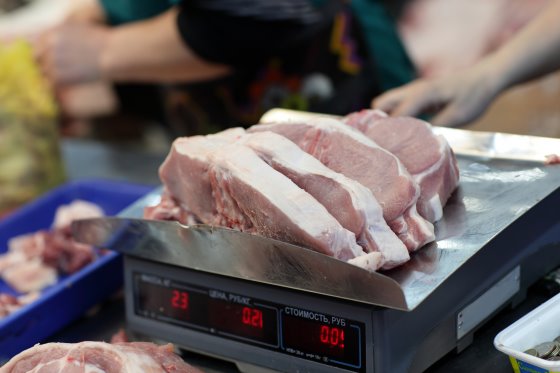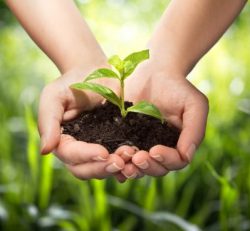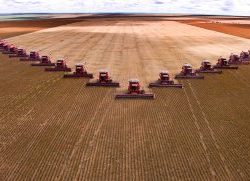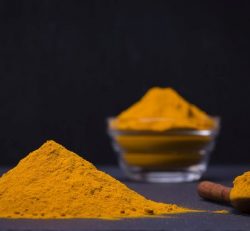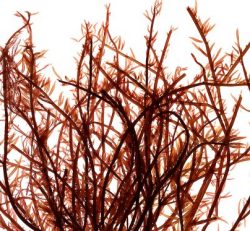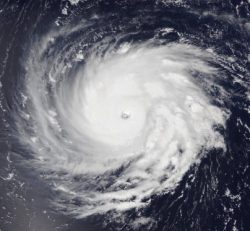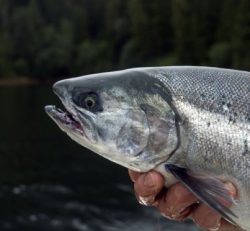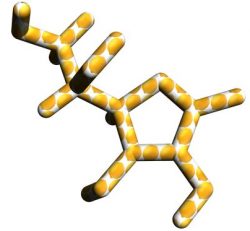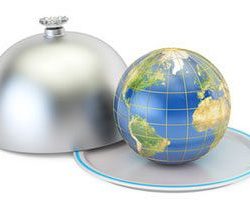RUSSIA: ANXIETY OVER NEW ANTIBIOTIC RESIDUES LAW
The Russian food industry has sent out alarm signals about new requirements on antibiotic residues in meat and milk production.
The new requirements will be in force in all member states of the Eurasian Economic Union (EEU) as from August 14. The EEU consists of Russia, Kazakhstan, Belarus, Armenia and Kyrgyzstan.
Lab checks for 70 antibiotics in meat
The Eurasia Economic Commission has adopted a list of 70 antibiotics and other drugs that must be subjected to laboratory control during entry inspections on all meat processing plants in the economic block.
Russia’s National Meat Association, the Association for Retail Trade Companies, the dairy industry’s union Soyuzmoloko and several other food industry organisations have filed a letter to the EEC requesting a postponement of the new rules.
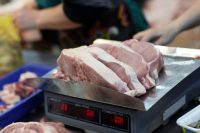
Slices of pork are being weighed at a market in Russia. Photo: Dreamstime
The concerns are raised as the list of drugs that must be subjected to control was significantly expanded, by nearly three times, when compared to the current regulations. At the moment, most meat processing plants in Russia have no equipment to test the presence of the residues of a large number of drugs listed in the new regulations, according to the organisations.
Pork, poultry, and dairy may not get to supermarkets
Should the new regulations be adopted as scheduled, then this could disrupt supply chains on the domestic food markets, with many batches of poultry, pork and dairy products eventually not allowed to hit grocery shelves, according to the organisations.
Moreover, in Russia there are no authorised ways to identify the presence of some of the listed substances, and in a similar way there are no clinical trials as to how much time it takes for some of the listed antibiotics to be withdrawn from an animal’s body, the letter stated.
Veterinary regulators are confused
Chances are high that the enforcement of the new regulations is postponed and possibly even revised. The Russian federal newspaper Vedomosti, citing its own sources, reported that even the Russian veterinary watchdog Rosselkhoznadzor has been confused over the new requirements. The Rosselkhoznadzor officers believe that the new rules, although drawn up with the right goal in mind, have been somewhat premature.
Vedomosti reported that the request is currently under consideration in the Eurasian Economic Commission. A decision on this issue is expected to be made in the coming weeks.
Regulations on antibiotics in meat
Russian veterinary officials have repeatedly claimed that its national rules on maximum allowable levels of antibiotic residues in meat and milk are amongst the strictest in the world.
Nevertheless, Russia’s veterinary legislation allows Russian farmers to use antibiotics and some other drugs in unlimited quantities. In Russia, the main focus is the absence of antibiotic residues in livestock products – in other words, as long as they cannot be detected in the final product. In recent years, years some officials in the country called to revise that system, however, no real steps in that direction has been made yet.
Vladislav Vorotnikov
Russian correspondent
Source: www.pigprogress.net


